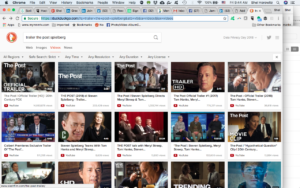This is a rare occurrence: Three of my heroes made separate local appearances this week—two from the generation older than me, and one from the generation that follows me.
George McGovern
George McGovern, 89, former Senator, Democratic nominee for President in 1972, and stalwart of the ’70s-era peace movement spoke Saturday to support his new book, What It Means To Be A Democrat, to bring attention to hunger causes—and to support Rep. James McGovern’s (no relation) re-election campaign. (I’m looking forward to having the younger McGovern, one of the most progressive voices in Congress, represent me; our town just got moved into his district.)
Born in 1956, I was too young to cast my vote for McGovern in 1972—but not too young to campaign for him, which I did. I also met the candidate at a campaign rally in the north Bronx (NYC) neighborhood where I was living (not a place that typically attracted national political figures). He impressed me with his decency, although not his speaking skills (charisma was not one of his big qualities). Listening to him on a local radio station this week, I was glad he’s become a better speaker—and glad, too, that he’s still willing to buck the system and oppose the wars in Afghanistan and Iraq…stand for positivity and discourse in politics…and be a voice for the voiceless whose safety net continues to be slashed by both parties.
McGovern, the elder, is a reminder of the days when the Democratic Party actually supported democratic values of peace, an anti-poverty agenda, and civil liberties—values that seem hard-to-find in today’s party, where the Dennis Kuciniches and Barbara Lees, Alan Graysons, and James McGoverns of the world are a tiny isolated minority at the far-left edge of a party filled with “centrists” who are less willing to back a progressive agenda than Richard Nixon was during his presidency. How can you take seriously a party that claims to be progressive and lets people like Ben Nelson and Steny Hoyer define it?
Where are the towering figures like Barbara Jordan, Birch Bayh, Bela Abzug, Shirley Chisolm, Tom Harkin, James Abourezk and so many others—all of whom served with George McGovern in Congress? Where is even a figure like Lyndon Johnson, able to grow past his southern segregationist heritage and shepherd through a series of civil rights bills? These were Democrats who were not afraid to speak their mind, not afraid to fight for justice, and willing to do what they could to steer the US toward a better path. They didn’t turn tail and start mumbling apologies any time someone called them a liberal as if it were some kind of curse word instead of a badge of honor—a disgraceful path embraced by Michael Dukakis during his 1988 Presidential run, and by far too many Democrats since.
Daniel Ellsberg
Another of my pantheon of childhood heroes, Daniel Ellsberg, 80, spoke on a panel of whistleblowers Thursday evening at Mt.Holyoke College. Ellsberg risked life in prison to release the Pentagon Papers, a massive set of documents that utterly discredited any plausible justification for the Vietnam war.
Ellsberg didn’t go to prison, though—because the government’s case was dismissed after it was discovered that the feds had way overstepped their bounds in investigating him. Unfortunately, under laws championed by and passed under both Presidents George W. Bush and Barack Obama, what they did to him would be legal today. That is a travesty, and part of what I mean when I say the Democrats have abandoned a progressive agenda. Despite whistleblower protection laws and even payment passed since the 1970s, the government is not nice when the whistleblowers go after government fraud. Whistleblowers still risk severe punishment (just look at Bradley Manning).
If you ask me, those who expose corruption at great personal risk are heroes, not criminals.
Rachel Maddow
Local weekend resident Rachel Maddow speaks tonight, also at Mount Holyoke. Maddow, who turns 39 tomorrow, has been a refreshing progressive, articulate, and intelligent voice in a generally desolate mainstream-media landscape. I’ve been a fan of hers since she made her radio debut as a morning-show newscaster on WRNX here in the Valley.
It’s great that there are people like Maddow to catch the torch as my generation, and my parents’ generation, starts passing it. We need more like her.
[Disclosure: I was not able to attend any of the events in person. This post is based on hearing McGovern and Ellsberg in separate appearances on Bill Newman’s radio show on WHMP, and on coverage in the Northampton, MA newspaper, the Daily Hampshire Gazette.]





